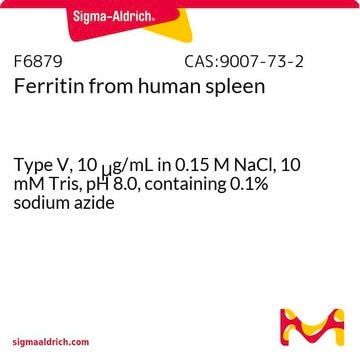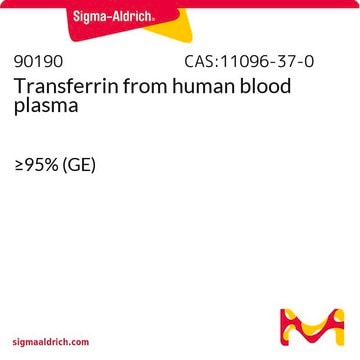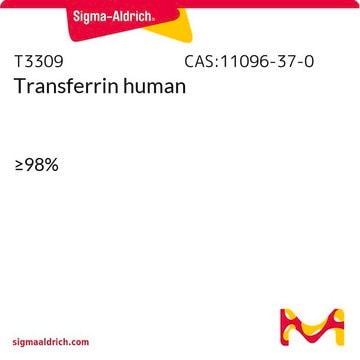K3753
Krebs-Henseleit Buffer Modified
With 2000 mg/L glucose, without calcium chloride and sodium bicarbonate, powder, suitable for cell culture
Sign Into View Organizational & Contract Pricing
All Photos(1)
About This Item
UNSPSC Code:
12352207
Recommended Products
General description
Krebs-Henseleit Buffer Modified is a balanced salt solution (BSS) that is used in cell culture and plays a role in providing cells with water and inorganic salts for normal cell metabolism. In addition, it provides a buffering system to maintain the optimal pH of the medium and acts as an irrigating, transporting, and diluting agent to maintain the intra- and extra-cellular osmotic balance. BSS provides glucose as an energy source for cell metabolism.
Application
Krebs-Henseleit Buffer Modified has been used:
- to collect the rat brains for ex vivo brain slice experiments
- to measure calcium and sodium in rat pulmonary arterial endothelial cells (PAECs)
- to collect the uterine and forelimb blood vessel samples from horses
Quantity
Formulated to contain 9.6 grams of powder per liter of medium.
Reconstitution
Supplement with 2.1 g/L sodium bicarbonate.
Storage Class Code
11 - Combustible Solids
WGK
WGK 1
Flash Point(F)
Not applicable
Flash Point(C)
Not applicable
Certificates of Analysis (COA)
Search for Certificates of Analysis (COA) by entering the products Lot/Batch Number. Lot and Batch Numbers can be found on a product’s label following the words ‘Lot’ or ‘Batch’.
Already Own This Product?
Find documentation for the products that you have recently purchased in the Document Library.
Customers Also Viewed
Shulin Li et al.
Stem cell research & therapy, 12(1), 27-27 (2021-01-09)
The therapeutic effect of mesenchymal stem cells (MSCs) from human adipose tissue on renal interstitial fibrosis has been demonstrated by several groups. However, the way to enhance the renoprotective effect of adipose-derived mesenchymal stem cells (AMSCs) and the possible mechanisms
Ignasi Jorba et al.
Journal of the mechanical behavior of biomedical materials, 71, 106-113 (2017-03-13)
Recent evidence suggests that obstructive sleep apnea (OSA) may increase the risk of Alzheimer´s disease (AD), with the latter promoting alterations in brain tissue stiffness, a feature of ageing. Here, we assessed the effects of age and intermittent hypoxia (IH)
Yermek Nigmet et al.
Transplantation, 103(3), 512-521 (2018-11-22)
Current critical shortage of donor organs has increased the use of donation after circulatory death (DCD) livers for transplantation, despite higher risk for primary nonfunction or ischemic cholangiopathy. Human atrial natriuretic peptide (hANP) is a cardiovascular hormone that possesses protective
Xiaoqian Zhang et al.
International journal of molecular medicine, 39(1), 101-112 (2016-12-14)
Cell encapsulation provides a three-dimensional support by incorporating isolated cells into microcapsules with the goal of simultaneously maintaining cell survival and function, as well as providing active transport for a bioreactor in vitro similarly to that observed in vivo. However, the biotra-nsformation
Hippocampal GSK3?? as a Molecular Link Between Obesity and Depression
Ioannis Papazoglou
Molecular Neurobiology, 52(1) (2014)
Protocols
Powdered media and salt mixtures are extremely hygroscopic and should be protected from atmospheric moisture.
Our team of scientists has experience in all areas of research including Life Science, Material Science, Chemical Synthesis, Chromatography, Analytical and many others.
Contact Technical Service










